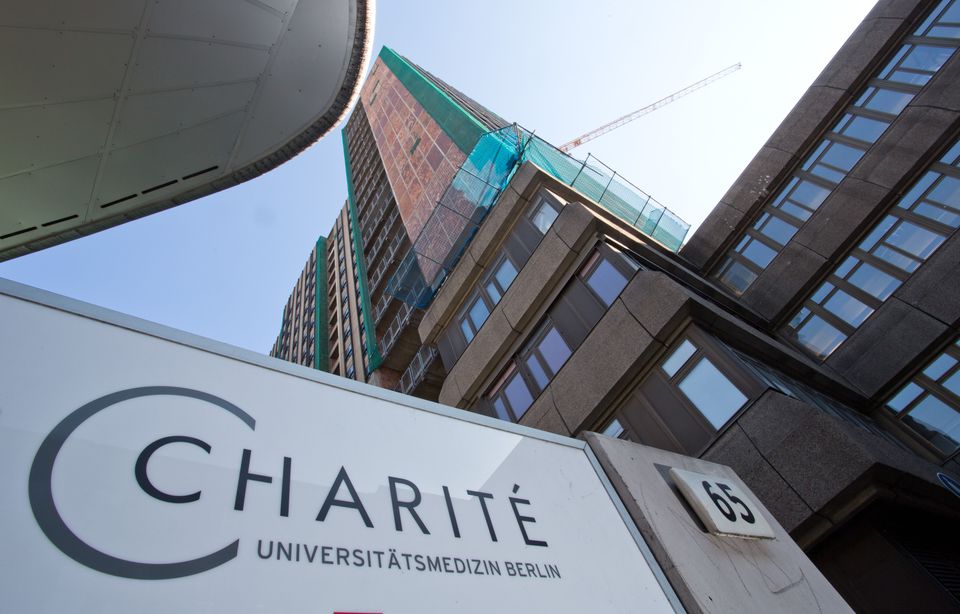- California Assembly OKs highest minimum wage in nation
- S. Korea unveils first graphic cigarette warnings
- US joins with South Korea, Japan in bid to deter North Korea
- LPGA golfer Chun In-gee finally back in action
- S. Korea won’t be top seed in final World Cup qualification round
- US men’s soccer misses 2nd straight Olympics
- US back on track in qualifying with 4-0 win over Guatemala
- High-intensity workout injuries spawn cottage industry
- CDC expands range of Zika mosquitoes into parts of Northeast
- Who knew? ‘The Walking Dead’ is helping families connect
S. Korean Ebola medic flown to Germany for anonymity after virus exposure

This photo shows an outside view of the Charite hospital in Berlin, Germany. A member of a South Korean medical team treating Ebola patients in Sierra Leone has been flown to Germany after suffering an injury with a hypodermic needle. Berlin’s renowned Charite hospital said in a statement that the unidentified medic was taken to its special isolation unit Saturday, Jan. 3, 2015. The hospital didn’t say whether an Ebola infection had been confirmed in the patient. (AP Photo/dpa, Joerg Carstensen)
BERLIN (AP) — A South Korean medic exposed to Ebola while working in West Africa has been flown to Germany for treatment because the patient’s anonymity would be better protected there, authorities in Berlin said Saturday.
Doctors at Berlin’s renowned Charite hospital said the medic, who had worked for an aid group treating Ebola patients in Sierra Leone, arrived in Berlin Saturday, five days after suffering an injury with a hypodermic needle.
“The person wasn’t flown to South Korea because the Korean government asked Europe step in,” said Dr. Frank Bergmann, who oversees the treatment of highly infectious patients at Charite hospital. “First of all it’s good from a transportation point of view to come here and secondly it’s better for the person’s anonymity to be treated here in Europe.”
He said the South Korean government and the medic had requested that as few details as possible be released, declining to give the person’s profession, age, gender or employer.
Ebola can be transmitted through bodily fluids and persons suspected of carrying the virus have been shunned in some countries by people fearful of infection. Experts say, however, that with proper precautions patients pose no risk to those around them.
The medic had been treating a delirious Ebola patient on Monday when the patient jolted, causing the needle on a blood-filled syringe to pierce the three plastic gloves the medic was wearing, said Bergmann.
“The patient had a very high viral load and died the next day, which means that there was a very high risk of infection,” he said.
Bergmann said the medic currently shows no symptoms of Ebola, but the incubation period will last a further 16 days, during which the person will remain under close medical supervision.
Should symptoms develop, doctors could provide experimental drugs and “with our European standards there should be a good prognosis,” he added.
















